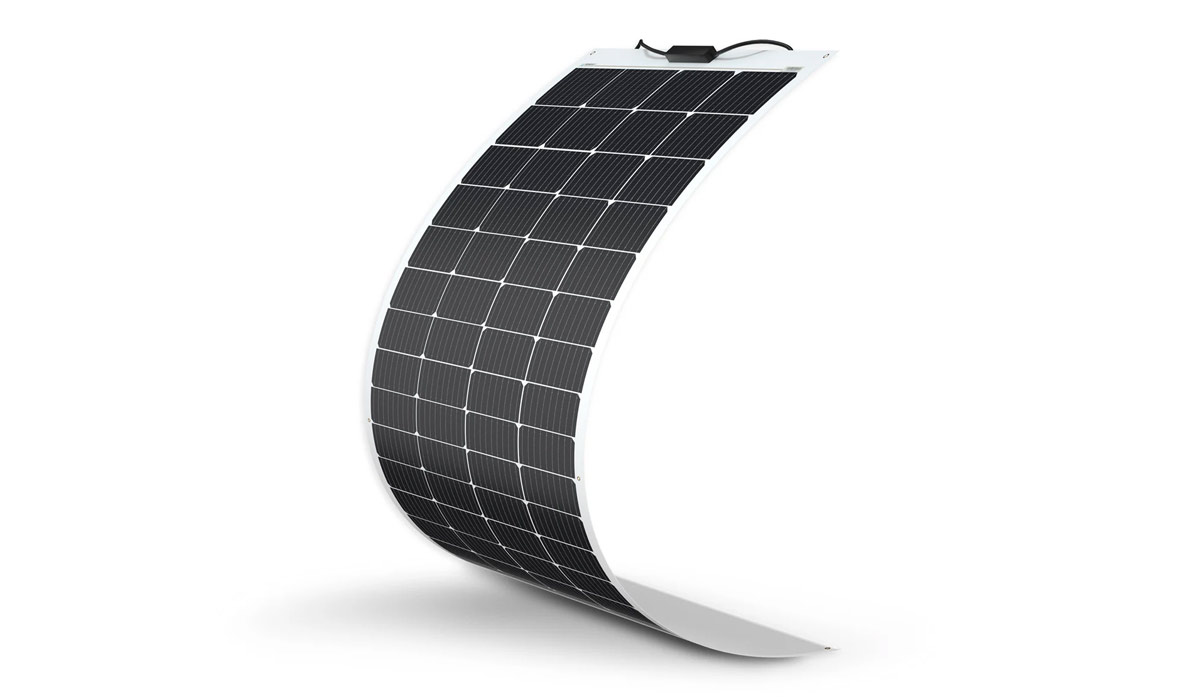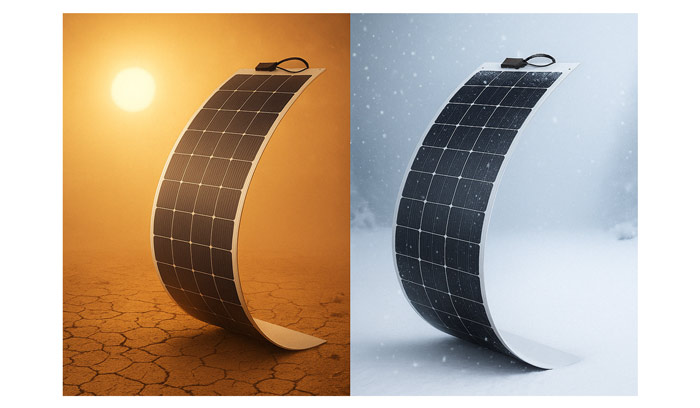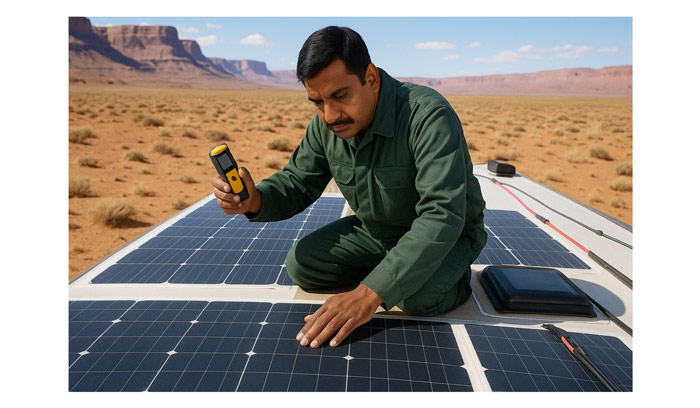Contents:
As Pakistan grapples with chronic energy shortages and rising electricity costs, renewable energy—particularly solar power—has become a promising solution. In recent years, the introduction of flexible solar panels has added a new dimension to the solar energy sector. Their lightweight design, adaptability, and ease of installation make them an attractive alternative to traditional rigid panels, especially for unique applications such as curved surfaces, mobile homes, boats, and temporary setups.
However, a common question arises among potential users and solar system owners in Pakistan: Do flexible solar panels require specialized maintenance compared to conventional panels? This article aims to explore the maintenance needs of flexible solar panels in the context of Pakistan’s climate, infrastructure, and usage trends. We will evaluate factors such as weather conditions, dust accumulation, panel durability, and availability of expertise to assess whether specialized care is necessary.

Understanding Flexible Solar Panels
Before diving into maintenance specifics, it's important to understand what flexible solar panels are and how they differ from traditional rigid panels.
Flexible solar panels are typically made using thin-film photovoltaic (PV) technology, such as amorphous silicon (a-Si), cadmium telluride (CdTe), or copper indium gallium selenide (CIGS). These materials allow the panels to bend and flex without breaking. In contrast, traditional panels use crystalline silicon encased in glass, which makes them rigid and heavy.
The flexibility and reduced weight of these panels make them ideal for non-conventional installations, including on curved rooftops, tents, portable solar kits, or vehicles. However, the very properties that make them versatile also raise questions about durability and long-term maintenance, especially in a country like Pakistan with diverse environmental conditions.

Climatic Challenges in Pakistan
1. High Temperatures
Pakistan’s climate is generally hot and arid, particularly in regions like Sindh, Punjab, and Balochistan. Temperatures can soar above 45°C during summer months. While flexible solar panels are designed to withstand heat, prolonged exposure to extreme temperatures can accelerate material fatigue, particularly if the panels are not properly ventilated.
- Maintenance Implication: Regular inspections for warping, delamination, or discoloration are recommended in hot climates. Though not necessarily specialized, this does require attention to detail and may involve thermal imaging tools to check for hotspots.
2. Dust and Pollution
Urban areas like Karachi, Lahore, and Faisalabad suffer from high levels of air pollution and dust. These particles settle on solar panels, blocking sunlight and reducing efficiency. Flexible panels, especially those installed on mobile or low-angle surfaces, are more susceptible to dust accumulation because they often lack self-cleaning coatings found on high-end rigid models.
- Maintenance Implication: Frequent cleaning is essential—possibly more often than for traditional panels. However, care must be taken not to scratch the surface or damage the delicate thin-film layer. Using soft brushes, distilled water, or low-pressure washers is recommended. This can be considered a form of "specialized" care compared to rigid panels.
3. Monsoon and Humidity
During the monsoon season, regions such as Islamabad, Lahore, and parts of Khyber Pakhtunkhwa experience heavy rainfall and high humidity. While flexible panels are generally waterproof, prolonged exposure to moisture, especially on edges or poorly sealed systems, can lead to water ingress and reduced lifespan.
- Maintenance Implication: Ensuring proper sealing and checking for water damage or corrosion becomes essential. Edge sealing materials should be inspected annually. This type of preventive maintenance may require skilled technicians.

Installation Contexts and Their Impact on Maintenance
1. Off-Grid and Mobile Applications
Flexible solar panels are frequently used in off-grid scenarios, including on RVs, boats, or remote agricultural sites. These locations often lack access to professional maintenance services, and environmental exposure is high.
- Maintenance Implication: Users must be trained in basic upkeep, including visual inspections, wiring checks, and basic diagnostics using portable multimeters. Though not highly technical, this demands more user involvement compared to fixed rooftop systems serviced by professional companies.
2. Curved or Unusual Surfaces
When installed on curved metal roofs or structures like greenhouses, the adhesion and mounting method becomes crucial. Improper mounting can cause micro-tears or detachment due to thermal expansion or wind.
- Maintenance Implication: Specialized adhesives or mounting tapes used in flexible panel installations must be checked regularly. This is a maintenance aspect unique to flexible panels and requires knowledge of compatible materials and techniques.
Availability of Skilled Technicians in Pakistan
One of the major constraints in Pakistan’s solar industry is the lack of trained technicians specifically familiar with flexible solar panel systems. Most training programs and workshops focus on traditional rigid panel installations.
Flexible panels involve different connectors, adhesives, and even junction box configurations, which may not be familiar to general solar installers. This lack of expertise can result in poor installation or improper maintenance, thereby shortening the lifespan of the panels.
- Maintenance Implication: While flexible solar panels don't necessarily require highly complex maintenance, the current gap in technical knowledge can make even routine care seem specialized. As the technology becomes more common, this gap is expected to narrow.
Warranty and Manufacturer Recommendations
Flexible solar panels often come with shorter warranties (10–15 years) compared to traditional panels (25+ years). Manufacturers usually provide specific maintenance guidelines, such as maximum cleaning pressure, acceptable bending radius, and compatible cleaning agents.
- Maintenance Implication: Following these manufacturer-specific instructions is essential to prevent warranty voidance. Users in Pakistan should ensure that they source panels from reputable suppliers who provide comprehensive manuals and after-sales support.
Economic Considerations
While flexible panels offer cost savings on installation (no heavy mounting structures, reduced labor), maintenance costs can be variable. More frequent cleaning, the need for gentle materials, and possible adhesive reapplication may offset some of these savings.
Additionally, because flexible panels often have lower efficiency (10–15%) compared to crystalline panels (15–22%), keeping them clean and functioning at optimal levels is even more critical.
Conclusion
So, do flexible solar panels in Pakistan require specialized maintenance? The answer is nuanced.
-
Yes, in the sense that their unique material properties and installation contexts demand more careful handling, tailored cleaning techniques, and climate-specific checks.
-
No, in the sense that the tasks involved are not inherently complex but may seem specialized due to a lack of widespread knowledge and trained technicians in the Pakistani market.
Ultimately, the maintenance of flexible solar panels in Pakistan depends on user awareness, environmental factors, and installation quality. As adoption grows and technician training improves, specialized maintenance will likely become routine, making flexible panels a more accessible and sustainable energy option for the country.








